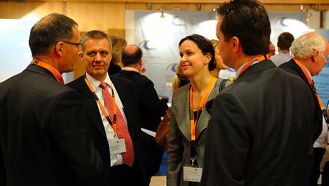Analytics, Economics, EU – Baltic States, Forum, Technology
International Internet Magazine. Baltic States news & analytics
Wednesday, 24.04.2024, 21:57
17th Baltic Development Forum Summit discusses regional problems
 Print version
Print version
This time, the 17th Baltic Development Forum Summit is arranged in Copenhagen, Denmark on 23 November 2015 under the slogan “Europe-wide challenges, regional solutions”.
Main issues at the summit deal, first with Baltic Sea Region’s approach to the world’s new collaboration paradigms while facing global competition challenges. Secondly, forum discusses the ways the Baltic Sea Region (BSR) exploit potentials for business and investments. Thirdly, forum deals with global/regional challenges and political priorities.
BDF’s vision & mission
 |
|---|
BDF is the leading think tank and the network for decision-makers from business, politics and academia in the Baltic Sea Region.
Hence, its vision is to make the region “the most dynamic, innovative and competitive growth center in the world”.
See: www.bdforum.org.
Therefore, the BDF’s mission has been to pursue “advanced growth and competitiveness in the region through public-private partnerships between business, government and academia”.
Vital issues for discussion
The first summit’s panel was devoted to the analysis of the current economic situation in the region. Session’s participants discussed prosperity’s development and the most recent trends with regards to the region’s position on global markets for trade and investment.
Patterns of competitiveness across the region as well as their effects on BSR’s future prosperity were discussed with the current economic policy stance and regional collaboration.
The first panel and the work of the whole summit have been chaired by Emily Wise, Research Fellow at Lund University.
Second
panel dealt with the present Commission’s Investment Plan, which would release €315
billion in the EU member states over the course of three years, with the aim of
supporting local businesses, investing in infrastructure and boosting science
and innovation.
Main presentation for the panel was made by Jan Vapaavuori, Vice-President, European Investment Bank and former Minister of Economic Affairs of Finland who described the issues connected to the main question: how can companies take advantage of the new investment opportunities and what implications will it have for the Baltic Sea Region as a whole?
Several prominent persons took part in the panel discussions: e.g. Andris Piebalgs, former European Commissioner; Carsten Stendevad, CEO, ATP Group; Harro Pitkänen, Head of Business Development and Control, Nordic Investment Bank and Henning Kruse, Director Governmental Affairs, Siemens.
Third
panel dealt with the region’s “business environment”; the following were the
main issues for discussion: the region’s attractiveness to global business; existing
barriers to business in investments and innovations; and the region’s
sustainability in its leading position in the world.
Among the panelists were: M. Darguzaite, head of Barclays Technologies Center in Lithuania; M. Gland, Deputy CEO, Helsinki Business Hub, D. Skilling, Director, Landfall Strategy Group, etc.
The fourth panel attracted a particularly vital subject for the region – digital agenda and the region’s role in the ICT sector. The discussion went around a presentation report “State of the Digital Region-2015” prepared by J. Lundblad & M. Andersson based on the “Top of the digital Europe” publications (commissioned by the ICT think-tank for the BSR).
Professor
M. Andersson introduced the series of publication made by the ICT think-tank.
At the positive sides of the “State of the Digital Region-2015” have been assessments of the BSR’s “digital area” with ideas of further collaboration and integration among states and businesses.
Other summit’s panels discussed BSR’s future, challenges and “game changes” connected to global business trends.
State of the Region
Current economic outlook and competitiveness of the Baltic Sea Region was discussed at the presentation of the State of the Region Report 2015.
Serving as a vital input into summit’s features a number of unique publications were present. Most notably, of course, has been the 12th edition of the State of the Region Report as well as two publications exploring the state of the digital economy and the digital single market.
See: http://www.conferencemanager.dk/17BDFSummit/the-event.html.
The
State of the Region Report 2015 was presented by the Report’s authors: Christian
Ketels, Senior Research Fellow at Stockholm School of Economics, and Helge
Pedersen, Group Chief Economist, Nordea.
Exploring a more compact, focused and business oriented format in 2015, the 17th session of the Baltic Development Forum Summit provided inspirations for perspective development in the Baltic Sea Region.








 «The Baltic Course» Is Sold and Stays in Business!
«The Baltic Course» Is Sold and Stays in Business!

